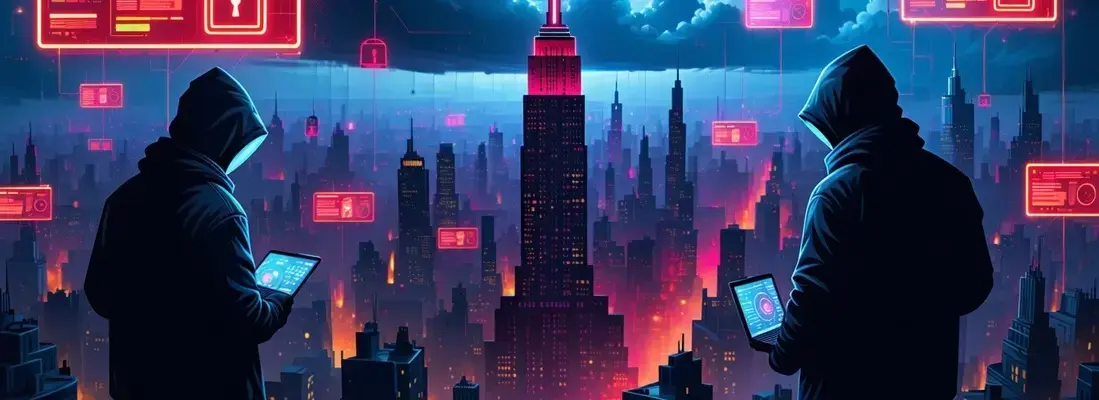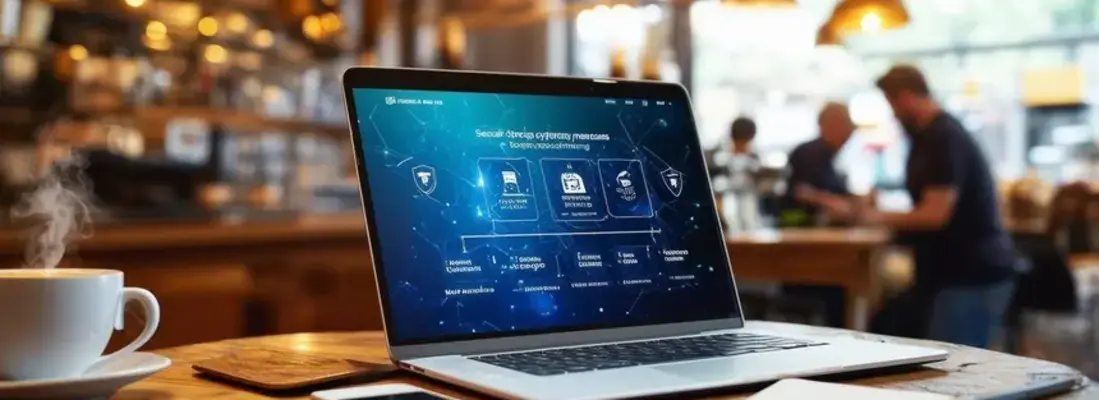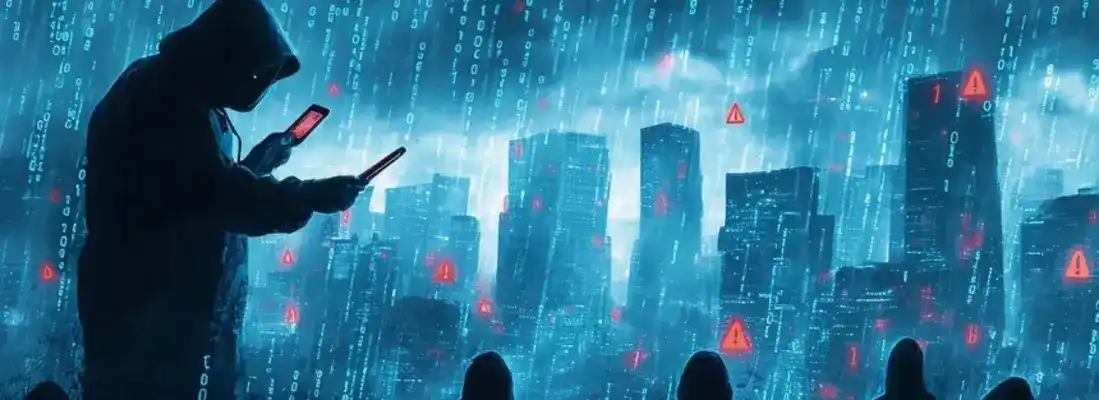Is The Internet Becoming More Dangerous?
Date: 14 August 2024

Long ago, the worst thing we could do to our family PC was to download that song.exe.mp3 file from Limewire. While certainly causing some damage and forcing us to re-install our Windows, early viruses were nowhere near as dangerous as now. We've moved our lives online, and hackers have followed. Modern hacking methods have become sophisticated, as they have much to gain but are not omnipotent. It's still possible to surf in safe waters and enjoy the internet as we're used to.
In this article, we take a look at some simple ways in which the dangers of modern-day Internet can be avoided. Adopting these best practices will help you surf the World Wide Web as safely as possible today.
1. A VPN a Day Keeps the Hackers Away
The easiest way to describe any VPN is obscuring your data and protecting you under the guise of anonymity. No, the incognito tab will not save you from any online dangers, but a VPN could. It's the equivalent of giving your stalker a fake phone and house number.
VPNs can mask your online address and prevent tracking software from following you. Using VPN software reviewed by our Software Reviews Expert Aleksandar Stevanovic gives you a better chance at staying hidden and flying under the radar of would-be-attackers, as you continue your daily online routine. Because VPN masks your online presence, it becomes harder for anyone to steal your data.
2. Use Trusted Websites
When you go to a shady part of town, it could be said you're asking for trouble, and the same applies online. Whenever you visit a website that your gut instinct tells you to close, you should listen to it.
Malicious websites are designed to steal your data in various ways:
- Phishing
- Using malicious software
- By IP tracking
Where a website would ask for personal data, not instill confidence with design, or ask you to download suspicious software or files - stay away. Taking the time to explore a site could be equally dangerous, and it's best to close the tab and research online by searching for the site name and references.
By not interacting with shady websites, you remain safe, and even if you spend some time on any of them, by not accepting any software or files or revealing anything about you, you have a higher chance of your data remaining intact.
Tactics used by such sites are sadly common website security threats, but they are manageable and avoidable. Stick to your trusted preferences and research before you visit any new places.
3. Silence is Golden
"Hey, how are you doing? It's been ages since we went to our high school, what was it called again? And you've always had your pet dog, with that peculiar name, right? By the way, how's your dad?"
By chatting online with anonymous people and answering seemingly boring questions you could reveal your confidential data. This allows them to crack answers to any personal questions you have used for added security for your email or banking accounts. Modern-day hackers use phishing attacks instead of complicated software, and with such psychological tricks can unknowing to you, get all the data they need.
Treat each online interaction as you would a real-world one. If a total stranger comes to you on the street and asks a personal question, would you reveal it? Just apply the same logic online, and you'll be safe.
4. Have Backups
No matter how much the online landscape changes or what dangers lurk, we still must use it. Attackers wish to get our email addresses, passwords, valuable data, and online riches we've stored, but you can stay one step ahead of the curve by making a backup up, or spare email that you can share freely.
This can be your dump email or a throwaway account you'll use for any subscriptions, online surveys, or similar, as even if they get hacked, you'll lose nothing, and the attacker will lose time and resources.
If you can't be asked to make and maintain a secondary email (we all have plenty to juggle), then you can always make a disposable email. It will shut down automatically after an X amount of time, and you'll remain safe.
5. Safety checks
Accidents happen, and we are all human. A slight breach could happen to anyone as we are spending increasingly longer time online. Your home has a gate and a door, and your account can have a password and a two-factor authentication feature, too.
The chances of getting your phone stolen by the same person who wishes to breach your account are slim to none, and 2FA serves to be your safety net even if hackers somehow manage to brute force or figure out your email and password combo.
6. Regular screening
Treat your computer's health as you would yours. If you have excessive problems, you won't leave them piling up but will visit a doctor. Your computer can suffer from seemingly small malware, running silently in the back and consuming next to zero resources, but they are still there.
Bugs pile up, suspicious or anonymous programmes eat away at your resources, and problems can mount over time. By regularly scanning your computer for malware and updating your antivirus, you're giving it a fighting chance.
Final Word
The internet remains a wonderful place that we could not live without. As more and more people move online and transfer their data, the value gets added to the network, and it's natural that ill-minded individuals will try to steal or compromise it.
They are not omnipotent, and with a level-headed approach and some thinking ahead, you can sway those attempts before they even happen. If anything, many think the internet is becoming a safer space for all and will continue to do so.







